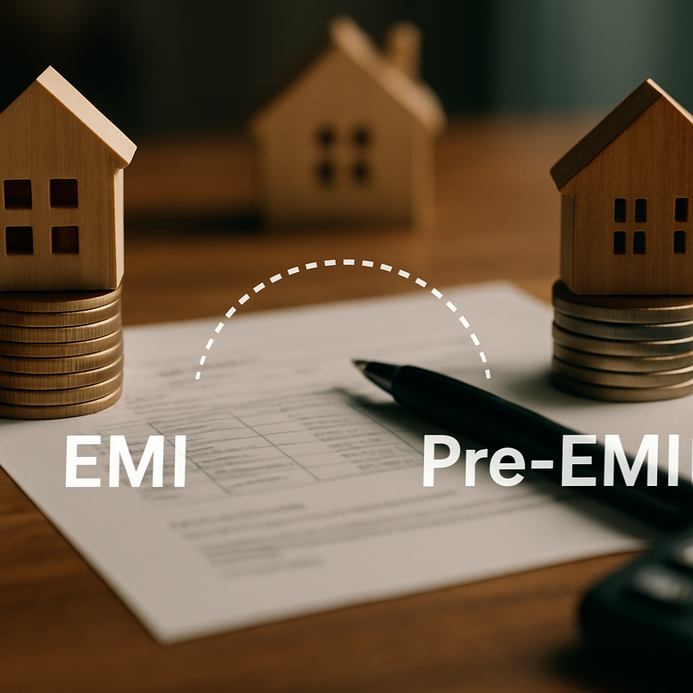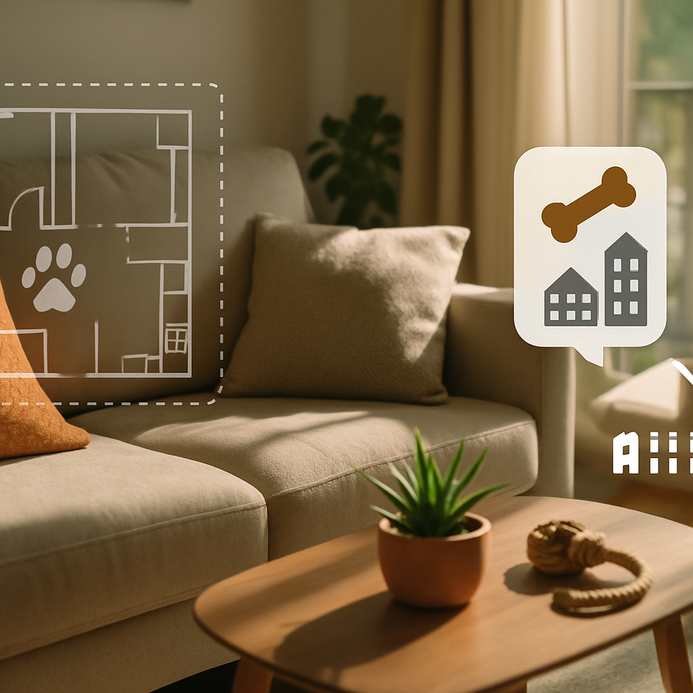Approval Differences Between RERA, HMDA, and GHMC Made Simple
Introduction: Understanding Property Approval in Hyderabad
Navigating the property approval maze in Hyderabad is crucial for ensuring compliance and safety in the real estate market. Three key players – RERA, HMDA, and GHMC are at the heart of it all, each contributing uniquely to the efficacy of the process.
RERA, or the Real Estate Regulatory Authority, plays a vital role in enhancing homeowner rights and ensuring transparency. It mandates that developers register their projects, which is essential for buyers seeking information about approvals and the trustworthiness of developers.
On the other hand, HMDA (Hyderabad Metropolitan Development Authority) governs urban planning in Greater Hyderabad. They have recently implemented a 10-day approval deadline for building permissions, streamlining the layout approval process for land development applications.
GHMC (Greater Hyderabad Municipal Corporation) operates on a municipal level, ensuring safety and compliance through the issuance of occupancy certificates. Understanding HMDA approval is integral, as it’s all about adherence to established regulations.
| Regulatory Body | Focus Area | Key Functions |
|---|---|---|
| RERA | Transparency | Project registration, consumer protection |
| HMDA | Urban Planning | Layout approvals, monitoring land development |
| GHMC | Municipal Safety | Issuing occupancy certificates, enforcing safety standards |
If you’re eyeing a property, checking the HMDA or GHMC approval statuses is pretty straightforward with available online resources. For more information, you can delve into HMDA regulations, explore RERA’s impact, or take a closer look at faster approval processes.
Unveil the 50-50 payment plan
What is RERA? Roles and Responsibilities
RERA, established under the Real Estate (Regulation and Development) Act in 2016, aims to boost transparency and accountability in the real estate sector. It provides a structural framework for developers while safeguarding homeowners’ rights, ensuring timely project delivery, and curtailing questionable practices.
Objectives of RERA
1. Transparency in Transactions: Developers are required to register their projects and disclose essential information to buyers.
2. Timely Project Completion: Developers must adhere to deadlines, ensuring that buyers receive their homes on time.
3. Consumer Protection: Buyers can seek recourse if developers fail to meet their obligations.
Responsibilities Enforced by RERA
Developers must comply with numerous regulations under RERA, including:
– Project Registration: Registration of every residential project is mandatory before any sales can occur.
– Periodic Updates: Project statuses must be kept current on the RERA website, aiding in tracking HMDA approval.
– Escrow Accounts: Funds received for under-construction properties must be put into an escrow account.
Additionally, RERA serves as an intermediary for dispute resolution, allowing homeowners to file complaints against builders, thereby fostering trust and accountability within the market.
For detailed insights on real estate approval processes, explore BigProperty or visit the Consumer Financial Protection Bureau for HMDA reporting details.
For more information on RERA, articles such as New RERA Rules in Telangana and RERA and Its Impact on Hyderabad Real Estate offer valuable insights.
The Role of HMDA in Urban Planning and Development
The HMDA is crucial in shaping Hyderabad’s urban landscape, focusing on sustainable growth and managing urban development through efficient approval processes.
| Aspect | HMDA Approval Status | GHMC Approval Process | RERA Role |
|---|---|---|---|
| Authority | HMDA | GHMC | Real Estate Regulation Authority |
| Primary Focus | Urban Planning | Building Permits | Consumer Protection |
| Types of Projects | Layouts and Plots | Residential and Commercial | Project Registration |
| Approval Timeline | Approximately 30 days | Varies by project | N/A |
Approval from HMDA indicates the green light for layout plans and land use, which is vital for anyone considering development or purchase. Understanding HMDA mortgage statistics can provide insights into market trends that are necessary for making informed decisions. Developers must also familiarize themselves with the zoning regulations imposed by HMDA to ensure compliance with regional requirements.
Homebuyers should always verify the HMDA layout approval status before making a purchase, as it significantly influences the legitimacy, resale value, and sustainability of the property.
For further insights into HMDA policies, refer to articles such as flyovers influencing property value and RERA’s impact on society handovers.
GHMC: Ensuring Compliance with Local Regulations
As the local regulatory authority in Hyderabad, GHMC plays an indispensable role in the property approval process. Developers must obtain GHMC approval before commencing construction to adhere to local regulations and planning guidelines.
GHMC ensures that plans are compliant with zoning laws, building codes, and overall infrastructure objectives. Lacking their approval could lead to significant legal issues down the line. It is essential for anyone making an investment to confirm that a project has the HMDA approval status, as it guarantees compliance with vital safety and environmental standards.
Here’s a quick overview of GHMC’s functions in property approval:
| Function | Description |
|---|---|
| Regulatory Compliance | Ensures adherence to zoning laws and building codes. |
| Infrastructure Planning | Aligns projects with city development strategies. |
| Safety Standards | Checks compliance with health and safety regulations. |
| Public Utility Access | Ensures access to public utilities like water and electricity. |
For example, when a developer applies for HMDA layout approval, it signals their project’s eligibility for GHMC’s final nod. The recent 10-day approval deadline from HMDA significantly hastens the process.
Understanding what HMDA approval means is paramount for developers to maintain compliance and ensure project feasibility. They can easily verify project approvals through links like GHMC or HMDA approval checks to safeguard their investments.
In summary, GHMC’s role in property approval is fundamental to maintaining the integrity, safety, and functionality of residential projects. They contribute to ensuring compliance with local laws while fostering sound urban development. For tips on navigating property approvals, explore articles on home loans and resale property or brush up on GST on flat purchases.
Comparative Analysis: RERA vs. HMDA vs. GHMC
Understanding the roles of RERA, HMDA, and GHMC is crucial for successfully navigating the property approval landscape in Hyderabad. Here’s how these entities compare:
RERA is focused on protecting homebuyers by promoting transparency throughout the real estate sector. Its main functions include:
– Project Registration: Requires developers to register their projects, ensuring vital information is available to buyers.
– Customer Redressal: Offers mechanisms for buyers to resolve complaints.
– Compliance Monitoring: Ensures developers adhere to standards during project execution.
HMDA Approval Status
HMDA (Hyderabad Metropolitan Development Authority) manages urban planning and development. Their primary responsibilities include:
– Master Planning: Creating blueprints for urban development.
– Layout Approvals: Green-lighting land layouts essential for construction.
– Sale of Land: Regulating land use in accordance with zoning laws.
To check your current HMDA approval status, visit the official HMDA website.
GHMC (Greater Hyderabad Municipal Corporation)
GHMC addresses local governance directly, overseeing municipal affairs with key responsibilities such as:
– Building Permissions: Assessing and approving construction project plans.
– Tax Collection: Managing property tax collection and compliance oversight.
– Infrastructure Development: Enhancing local community amenities like parks and roads.
Comparison Table
| Authority | Main Function | Focus Area |
|---|---|---|
| RERA | Consumer protection, project regulation | Real Estate Sector |
| HMDA | Urban planning, layout approvals | Urban Development |
| GHMC | Local governance, building permissions | Municipal Services |
Navigating and understanding these distinctions is vital for both investors and homeowners, ensuring compliance and facilitating smoother property transactions in Hyderabad. For more on HMDA’s layout approval status, visit Meraqi Advisors.
Additionally, if you’re interested in property taxes, check out information on GHMC Property Tax or explore how city infrastructure impacts property value.
FAQ
1. What does RERA stand for and what is its purpose?
RERA stands for Real Estate Regulatory Authority, and its purpose is to promote transparency and protect the rights of homebuyers in the real estate market.
2. How does HMDA contribute to urban planning?
HMDA (Hyderabad Metropolitan Development Authority) focuses on sustainable urban growth through the approval of layout plans and managing land use throughout the Hyderabad metropolitan area.
3. What is the role of GHMC in property approvals?
GHMC (Greater Hyderabad Municipal Corporation) ensures that construction projects comply with local regulations, including zoning laws and safety standards, and issues the necessary permissions before work can commence.













